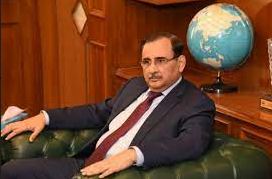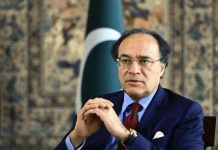Anjum Nisar says high capacity charges to make Pakistani products out of competition in global market
ISLAMABAD, JUN 30 /DNA/ – The Federation of Pakistan Chambers of Commerce and Industry’s Businessmen Panel (BMP) has rejected the unprecedented increase of up to 355 percent in fixed charges of electricity for industrial consumers, beside showing dismay over imposition of high capacity charges on consumers stating that high cost will make Pakistani products completely out of competition in the international market.
Businessmen Panel (BMP) Chairman and FPCCI former president Mian Anjum Nisar held an emergent meeting of stakeholders on higher electricity tariffs, stating that NEPRA’s latest forecast for power purchase prices for the current fiscal year reveals a substantial financial burden, with consumers to bear 300% of costs for fixed capacity payments. He was of the view that substantial fuel costs, particularly petroleum imports, potentially pose extreme volatility and strain on foreign exchange reserves.
Businessmen leader said the unprecedented increase in fixed charges was tantamount to destruction of industries and burying people alive. The traders warned of the government for launching an agitation campaign. They also made it clear that if in case, the decision couldn’t be withdrawn immediately, aggressive and harsh steps would be taken against unfair and unjust hike in fixed charges, and government and relevant authorities will be responsible for any unfortunate incident, he added.
Mian Anjum Nisar said the government should prioritize resolving the energy crisis by providing sufficient and affordable electricity and gas to industries. The import bill should be reduced by imposing bans on luxury products. He highlighted controlling inflation to ensure affordable living costs for the masses and containing the cost of production for businesses at a local level.
He stressed the need for a revisit of the economic policies, as the economic indicators throughout the 2024 remained very depressed amidst high inflation, low exports, depleting foreign reserves and continued uncertain position of the local currency.
He said the government and NEPRA had made a whopping increase in fixed charges up to 355 percent for industrial consumers, which was completely unjust, unfair and pushed industry to further destruction and was tantamount to putting the last nail in the coffin of this important sector. Attempts are initiated to add the ordeals of the business community, which is highly condemnable, he said. He vowed the business community will strongly resist anti-industry and business policies and be forced to widely agitate.
Owing to flawed policies of the government, he added, the industrial growth has slowed down and a number of units were shut down in the province. He warned industries will completely close and trigger further unemployment so it is essential to revisit overall policies and let industries and economy flourish.
The BMP chief further stated that residential consumers are unable to pay their electricity bills. On an average, residential and commercial consumers pay 15-20% extra in the form of uniform quarterly adjustment; fuel price adjustments and additional surcharges.
Residential consumers pay an extra 20-25% in the form of electricity duty, sales tax, and income tax. Residential consumers are subjected to pay Rs35.57 per kWh for off-peak load and Rs41.89 per kWh for peak load. These charges exclude taxes, fuel cost adjustments, uniform quarterly adjustments, and additional surcharges, according to Sheikh.
Commercial consumers are also subject to further tax and extra tax in addition to electricity duty, sales tax and income tax. In current bills, commercial consumers are paying 37-40% of the total electricity charges in taxes and duties,” he said.
He explained that a commercial consumer with electricity consumption of 5000 kWh is subject to pay a hefty Rs381,785 rupees in electricity bill. It is astonishing to note that around Rs135,994 rupees will go into the government pockets in the form of taxes and duties not including additional surcharge and fuel cost adjustment.”
He asked the government to negotiate with power plants to increase the debt payment period to reduce the capacity component in the power tariff. We urge the government to halt the imposition of sales tax for 8 months in order to reduce the cost of doing business, he said, adding that businesses could not survive with provision of unaffordable electricity.
He said it is totally incomprehensible that consumers are already paying charges on units and there is no justification for imposing fixed charges on consumers, he added.
The immediate solution to reduce the power tariff is to reduce the operational costs of all power distribution companies, i.e. withdraw the provision of free electricity to WAPDA employees; reduce transmission & distribution (T&D) losses, and eliminate electricity theft,” he said.
He said the main issue is capacity charge and theft. Capacity charges can be overcome by increasing consumption, which can be achieved by reducing overall industrial unit price, he told. Net effect would be lower inflation, a stable round the year base-load, higher exports, and lower imports, he envisaged. It will be a win-win situation for all. He emphasised that industrial unit price should be lowered to a point where it sets off the capacity charges. Let us not forget that there is a 20,000 megawatts difference in summer and winter months. He urged the government to reduce the rate up to 300 units to protected consumers so they do not resort towards theft.

















